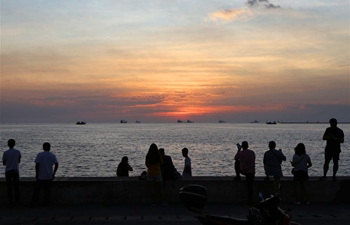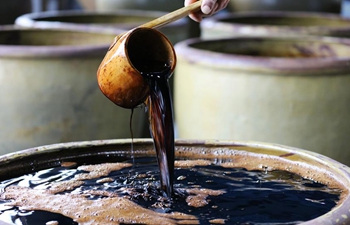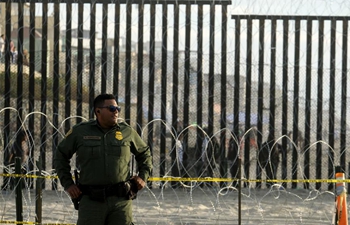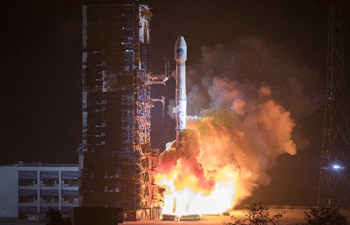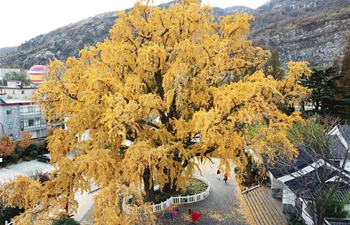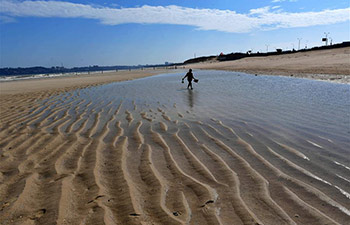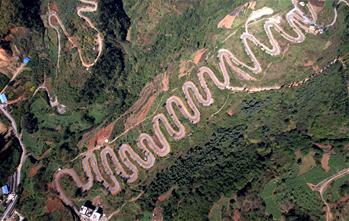
Actors of the play "The Orphan of Zhao" perform during a rehearsal at the National Theatre of Greece, in Athens, Greece, on Nov. 17, 2018. The traditional Chinese play, "The Orphan of Zhao", premiered in Athens on Sunday, arousing an overflow of feelings to the audience who watched a new adaptation of the Chinese masterpiece marking the meeting of the two great civilizations. (Xinhua/Marios Lolos)
ATHENS, Nov. 19 (Xinhua) -- The traditional Chinese play, "The Orphan of Zhao", premiered in Athens on Sunday, arousing an overflow of feelings to the audience who watched a new adaptation of the Chinese masterpiece marking the meeting of the two great civilizations.
For the first time, Chinese and Greek artists performed in their respective languages one of China's greatest tragedies on the stage of the National Theatre of Greece, proving that art has no boundaries.
Under the bilateral agreement of the national theatres of China and Greece, the much-loved story was presented to the audience incorporating two theatrical drama styles under the guidelines of the Chinese director Wang Xiaoying.
"We have a unique result: it's not completely Greek, it's not completely Chinese. It's a collision and a fusion of two cultural ideas in an exceptional play", Wang told Xinhua.
Speaking for the collaboration, the artistic director of the National Theater of Greece, Stathis Livathinos, expressed his excitement on the endeavor.
"There is something unusual in this project. The play is bilingual, culture and languages of the two civilizations co-exist in this theatrical production. Language is culture, and vice versa," Livathinos said, explaining that language could be a bridge and not a barrier.
"I think it is great interaction and exchange between the Chinese and Greek culture. It is also a profound expression of the two countries' friendship," Chinese playwright Yu Qingfeng added.
The story of the "The Orphan of Zhao", from China's Yuan Dynasty (1271-1368), tells a tragic tale of an orphan surnamed Zhao, who was saved thanks to the selflessness of a doctor, taking his revenge years later. The play is a masterful contemplation of vengeance, power, justice, loss, and sacrifice.
For this adaptation, Wand did not follow the traditional path but enriched the story with contemporary elements in an effort to involve and engage the audience.
According to the Chinese director, the new version reflects a theme so up to date and global: Can one person's kindness eliminate the hatred of mankind?
"It was an exceptional performance. Especially, the doctor who had the leading role was amazing. I was worried that I would not understand, but the language was not a problem. And the doctor's performance moved me," Aphrodite Kapralou, who came with her friends to watch the play, told Xinhua.
Greek actor Thanasis Sarantos praised the timeless character of the play along with the intercultural exchange of the two countries.
"At the beginning, there was fear because we are two different cultures, two different languages, but afterward we saw that we have so much in common," Sarantos said.
"We are two nations with great ancient civilizations with respect to each other since ancient times. It was an exquisite experience with the whole team, the actors; the team spirit was incredible."
The Chinese play will run until Dec. 2 at the National Theatre in Athens. It is performed in Greek and Chinese, with subtitles in Greek, Chinese, and English.
